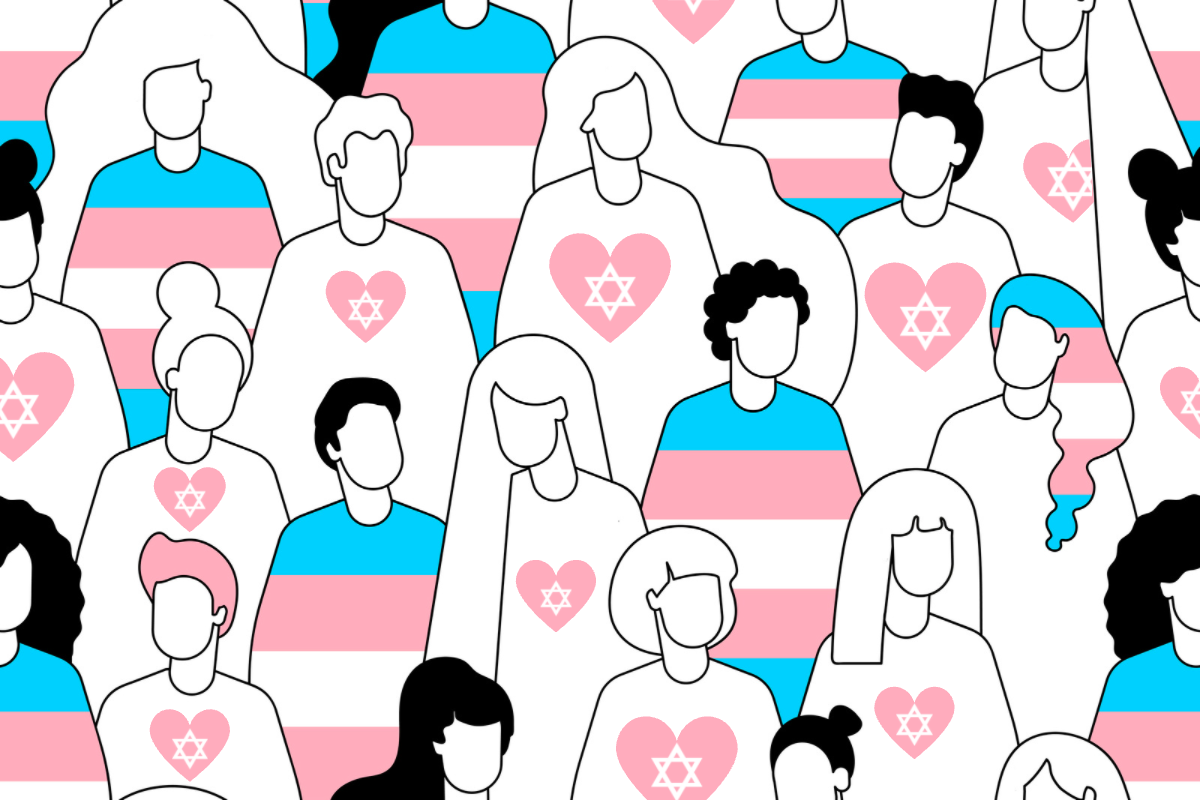Right now is a terrifying time to be transgender in the United States. Texas and Alabama have criminalized healthcare for transgender and nonbinary youth, and many state legislatures are poised to follow. In schools across the country, parents and administrators are closing the door on trans youth, while politicians are working to erase them from public life.
As a Jewish community, we should be doing more to proactively protect and celebrate transgender children and adolescents in our Jewish spaces.
Saving a life (in Hebrew, pikuach nefesh) is a core Jewish value. The rabbis of the Talmud tell us, “Whoever saves one life, it is as if that person saved the whole world.” A life is more important than any mitzvot. Life is more important than fasting on Yom Kippur. If a person needs to take medicine, the Talmud tells us, the community should support them in doing everything they need to take the medicine and maintain their health. You should live by the mitzvot, not die by them.
Trans-affirming healthcare is medicine. Puberty blockers are medicine. Hormone Replacement Therapy is medicine. Gender affirming surgeries are medicine. They save lives.
As Jews, we have the moral obligation to value life.
Over half of transgender and nonbinary youth have considered suicide within the past year, according the Trevor Project 2021 National Survey on LGBTQ Mental Health. Transgender and nonbinary youth are two to two and a half times more likely to experience depression and attempt suicide than their non-transgender LGB peers. Youth with multiple, intersecting marginalized identities experiences even greater disparities in mental health.
Every week, I inject testosterone. It is the last thing I do before Shabbat. I recite the prayer of the body, “asher yatzar,” as I push the oily substance down the syringe and into my body. I like how the repeating sounds roll over my tongue, the repetition of “vo nekavim nekavim, halulim halulim.” I like how asher yatzar sanctifies the weekly act of taking medicine and maintaining my health.
After I began incorporating this ritual into my Shabbat prep, I found Rabbi Eliot Kukla’s beautiful interpretation of the prayer. He expands the prayer’s acknowledgement that a person’s body plays a central role in spiritual life to include the bodies of transgender or nonbinary people inhabiting their full identities and expressions:
“It is clear and well-known that if just one of these unique valves within the complexity of each body was blocked or ruptured, it would be impossible to survive. May the day come when it is also obvious and evident that if just one unique body within the complexity of Your world is blocked or ruptured, if just one of us is not allowed to make our distinctive beauty manifest in the world, then it is impossible for all of Your creation to thrive and rise each day joyfully before You.”
Rabbi Kukla ultimately concludes the prayer with the blessing for transition and partnership:
“Blessed are You, Eternal One, who has made me Your partner in daily completing the task of my own formation.”
As I began praying this version of asher yatzar while doing my weekly testosterone shot, I felt the power of a Jewish ritual that explicitly affirms my transgender identity. In fact, Judaism is enriched by the spirituality, kavanah and life experiences of transgender Jews.
As a Jewish community, we must not forget that there are already transgender and nonbinary children and adolescents in our synagogues, our youth groups and our Jewish spaces. Whether or not they are out, trans children and teens are looking for signs of inclusiveness and acceptance. We are all made b’tzelem elohim, in the image of God.
Having just one supportive adult can lower the suicide risk of transgender or nonbinary teens by 40%. A whole community’s support dramatically decreases risk.
I am privileged to have a supportive family, a loving wife and a Jewish community in which LGBTQ Jews of all ages are an integral and vital part. In my shul, my rabbi regularly references transgender identities in her midrash, her sermon, and we have a Progress Pride flag next to the ark that holds our torah scrolls.
People often ask me what they can do, or what should be considered in making spaces more welcoming.
Let youth know they’re welcome in Jewish community. Hang up a Progress Pride flag in your sanctuary and in your youth group spaces. Include transgender and nonbinary people in prayers, torah study and newsletter spotlights. Invite transgender Jews to give talks and lead Shabbatons. Check out Keshet’s resources for creating a more inclusive Jewish community. Host a Pride Shabbat in June.
Donate to trans-centered organizations: Trans Life Line, Transgender Law Center, TGI Justice Project, and Keshet.
Call transgender and nonbinary people by their names. Use their correct pronouns.
During these frightening times, we can speak and act in line with our value of pikuach nefesh, of saving lives. This means showing youth that they are an integral part of Jewish community.



